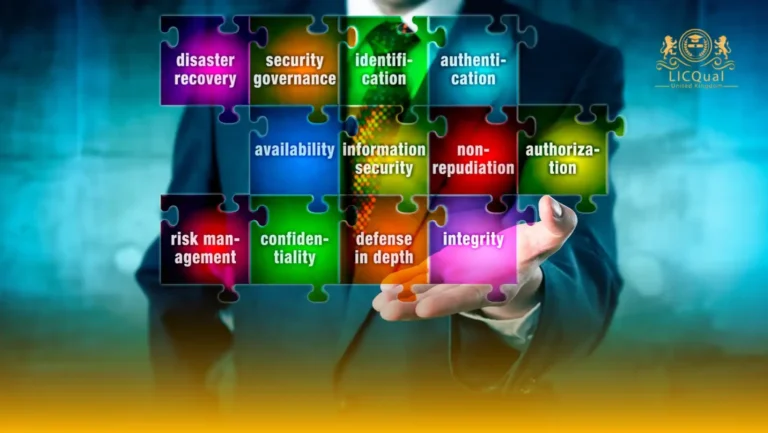The LICQual Level 3 Certificate in Anti-Money Laundering and Customer Verification Training is an advanced certification designed for professionals seeking to master the complexities of financial crime prevention. If you’re already familiar with the basics of anti-money laundering (AML) and customer verification, this course will equip you with the advanced knowledge and skills needed to handle more sophisticated compliance challenges.
As the global fight against money laundering continues to intensify, businesses and organizations need experts who can effectively manage risk, implement compliance programs, and ensure robust customer verification processes. This qualification will prepare you to become a key player in safeguarding financial institutions and businesses against illicit activities.
The LICQual Level 3 Certificate in Anti-Money Laundering and Customer Verification Training offers an in-depth exploration of the advanced aspects of AML and customer verification. Throughout this course, you’ll learn how to develop and implement comprehensive AML strategies, manage high-risk scenarios, and oversee complex compliance programs.
The curriculum covers critical topics such as advanced customer due diligence (CDD), KYC procedures, risk assessment, and suspicious activity reporting. Additionally, you’ll gain insights into international AML standards and best practices, enabling you to stay ahead of evolving regulations.
Designed for experienced professionals in financial services, banking, and compliance, this course offers practical, real-world knowledge that can be applied immediately in the workplace. By the end of the program, you will have the expertise to design and implement AML frameworks, monitor high-risk transactions, and ensure ongoing compliance with local and international AML laws. Enhance your career and become an expert in anti-money laundering with the LICQual Level 3 Certificate in Anti-Money Laundering and Customer Verification Training.
Course Overview
Qualification Title
LICQual Level 3 Certificate in Anti-Money Laundering and Customer Verification Training
Total Units
6
Total Credits
24
GLH
120
Qualification #
LICQ2200321
Qualification Specification
To enrol in the LICQual Level 3 Certificate in Anti-Money Laundering and Customer Verification Training, candidates must meet the following entry requirements:
- Educational Requirements: A minimum of a high school diploma or equivalent is required. While no specific academic background is necessary, a basic understanding of financial systems, business, or compliance would be advantageous.
- Experience:Candidates should have a foundational knowledge of anti-money laundering (AML) practices or have completed a Level 2 AML qualification or equivalent. Previous experience in compliance, financial services, or a related field is recommended but not mandatory. Those currently working in roles such as compliance officers, financial analysts, or customer verification specialists will benefit most from this course.
- English Language Proficiency: Proficiency in English is required as the course materials, discussions, and assessments are in English. Candidates should have at least an intermediate level of English (B2 or higher) to fully engage with the content and complete course requirements effectively.
- Age Requirement: Candidates must be at least 18 years of age at the time of enrolment.
|
Qualification# |
Unit Title |
Credits |
GLH |
|---|---|---|---|
|
LICQ2200321-1 |
International Anti-Money Laundering Regulations |
4 |
20 |
|
LICQ2200321-2 |
Advanced Customer Verification and Identity Management |
4 |
20 |
|
LICQ2200321-3 |
Investigating and Reporting Complex Money Laundering Cases |
4 |
20 |
|
LICQ2200321-4 |
AML Risk Management and Controls |
4 |
20 |
|
LICQ2200321-5 |
Developing Effective AML Policies and Procedures |
4 |
20 |
|
LICQ2200321-6 |
Legal Aspects of Money Laundering and AML Compliance |
4 |
20 |
By the end of this course, learners will be able to:
International Anti-Money Laundering Regulations:
- Demonstrate an understanding of international AML regulations and frameworks, such as those set by the Financial Action Task Force (FATF).
- Apply international standards to local compliance practices and ensure adherence to global AML requirements.
- Assess the impact of evolving global regulations on financial institutions and other businesses.
Advanced Customer Verification and Identity Management:
- Conduct advanced customer verification and identity management processes, including the use of sophisticated tools and techniques.
- Implement enhanced due diligence (EDD) measures for high-risk customers, ensuring compliance with regulatory requirements.
- Evaluate and apply best practices for customer verification, including KYC (Know Your Customer) and PEP (Politically Exposed Person) checks.
Investigating and Reporting Complex Money Laundering Cases:
- Develop the ability to investigate complex money laundering schemes, identifying key indicators and red flags.
- Prepare comprehensive reports on suspicious activities and submit Suspicious Activity Reports (SARs) in compliance with legal and regulatory requirements.
- Understand the legal framework for reporting and the responsibilities of businesses in detecting and preventing financial crime.
AML Risk Management and Controls:
- Assess and manage the risks associated with money laundering in financial institutions and businesses.
- Design and implement effective AML risk management strategies, including risk-based approaches to customer due diligence.
- Evaluate and strengthen internal controls to prevent and detect money laundering activities.
Developing Effective AML Policies and Procedures:
- Create and implement comprehensive AML policies and procedures tailored to the needs of an organization.
- Ensure that policies align with both local and international regulations while addressing specific business risks.
- Promote a culture of compliance within an organization through effective policy development and employee training.
Legal Aspects of Money Laundering and AML Compliance:
- Understand the legal implications of money laundering and the legal responsibilities of businesses in ensuring AML compliance.
- Review the legal frameworks governing AML practices, including the role of law enforcement agencies and financial regulators.
- Analyze case law and regulations related to money laundering and the enforcement of AML laws, ensuring the organization remains compliant.
This diploma is ideal for:
- Professionals in compliance, risk management, and financial services seeking to deepen their expertise in anti-money laundering (AML) and customer verification.
- Individuals already working in roles such as compliance officers, financial analysts, or customer due diligence specialists who want to advance their knowledge of complex AML processes.
- Those responsible for implementing or overseeing AML policies, procedures, and controls within their organization.
- Managers or senior staff in banks, financial institutions, law firms, or other regulated industries who need to stay updated on international AML regulations and best practices.
- Professionals involved in investigating and reporting financial crimes, including those responsible for preparing Suspicious Activity Reports (SARs).
- Individuals aiming for higher-level roles in financial crime prevention, AML compliance, or regulatory affairs.
- Those looking to gain a recognized qualification to enhance their career prospects in financial services and compliance sectors.
Assessment and Verification
All units within this qualification are subject to internal assessment by the approved centre and external verification by LICQual. The qualification follows a criterion-referenced assessment approach, ensuring that learners meet all specified learning outcomes.
To achieve a ‘Pass’ in any unit, learners must provide valid, sufficient, and authentic evidence demonstrating their attainment of all learning outcomes and compliance with the prescribed assessment criteria. The Assessor is responsible for evaluating the evidence and determining whether the learner has successfully met the required standards.
Assessors must maintain a clear and comprehensive audit trail, documenting the basis for their assessment decisions to ensure transparency, consistency, and compliance with quality assurance requirements.







